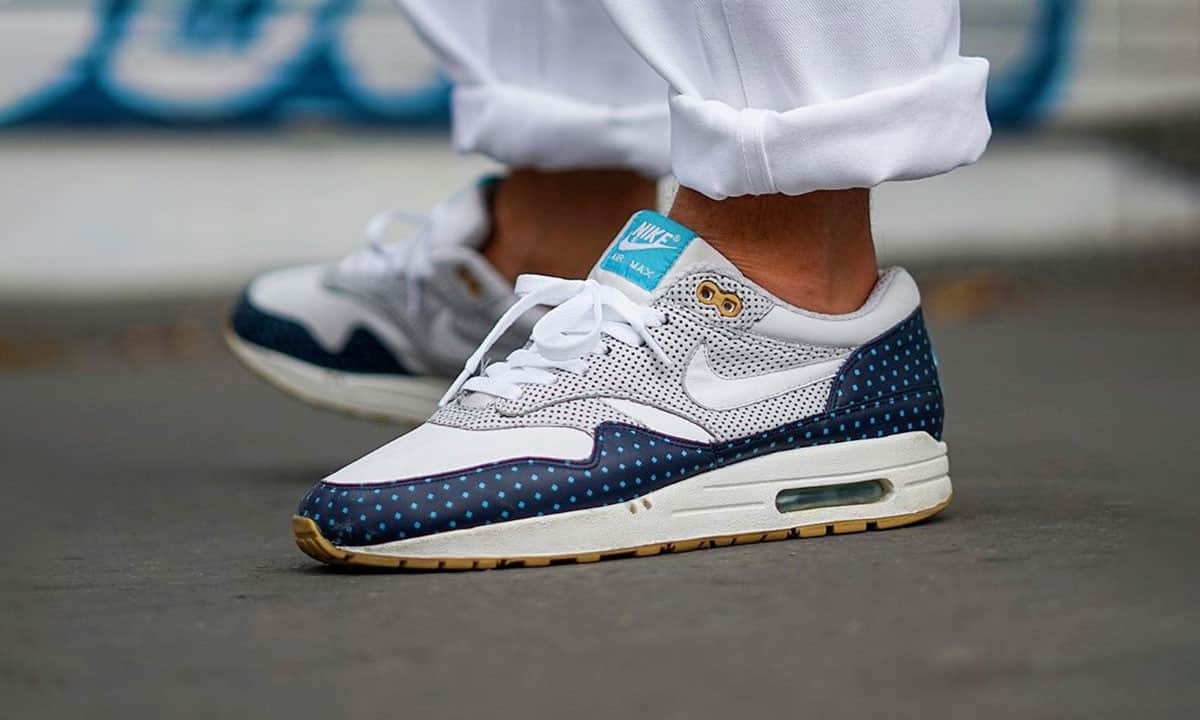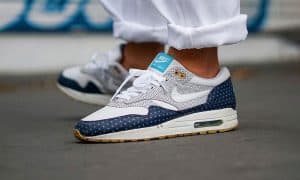Join Our Telegram channel to stay up to date on breaking news coverage
The applications of blockchain technology have grown to be quite extensive, with more companies listing it to improve their operations. A new trend, however, has appeared in Australia and it deals with authenticity verification in the fashion space.
Seamless Authentication for Nike Shoes
Earlier this week, blockchain-based tracking platform VeChain announced that it had partnered with Chase Shiel, an Australian manufacturer, to verify the authenticity of the company’s shoes.
According to the announcement, Chase Shiel had partnered with The Kickz Stand, a local shoe retailer, to produce a limited run of Nike Air Max 1 shoes. The sneakers will be based on Stussy’s “SB Dunk” shoe, which made its debut back in 2005. The manufacturers added that they would be making the shows available on sale from June 28, with the Chase Shiel website having exclusive rights.
However, what appears to be rather interesting is that the manufacturers will be using VeChain to authenticate each pair. According to a tweet from The Kickz Stand, users will be able to trace each pair using VeChain’s ToolChain Suite and the Thor Blockchain.
In 2005 the @Stussy SB Dunk was released. Fast forward 15 years later, now we pay homage to a classic. Introducing the Air Max 1 'Cherry' by @chase_shiel and @TheKickzStand. Powered by @vechainofficial. Releasing on 28/06 at https://t.co/keaTqan7Ms.#vechain #vechainthor pic.twitter.com/77cqa3Gx43
— The Kickz Stand (@TheKickzStand) June 24, 2020
The Australian shoemaker first unveiled its partnership with VeChain back in November 2019. At the time, the company announced on Twitter that it would be using the blockchain platform to fight cheap knockoffs and verify its products’ authenticity.
Under the companies’ agreement, all shoes from Chase Shiel will ship with a tracking chip from VeChain. The chip will allow customers and retailers to access comprehensive product details by simply scanning a QR code. By doing this, they can verify the shoes’ authenticity and identify all the important information.
Fighting a Multibillion-Dollar Industry
The partnership is quite interesting. Shoe manufacturers like Nike have had significant issues with fighting counterfeiting over the past years, and this product could significantly help them in that fight.
The global counterfeiting industry is a booming one. Last year, the European Union’s Intellectual Property Office reported that the worldwide sales of knockoff goods crossed $520 billion. That number represented about 3 percent of all global trade.
So far, shoes are one of the most counterfeited products in the world. A now-unsealed federal complaint from last year pointed out that an international counterfeiting ring managed to ship thousands of counterfeit sneakers into the United States. The organization reportedly used an elaborate network of fake company names, paperwork, bogus Email addresses, and burner phones. Most of the shoes were fakes of Nike and Louis Vuitton brands, and the complaint estimates that the shoes would have been worth a staggering $472 million if they were real.
Law enforcement authorities have also conducted some significant counterfeiting busts. In August 2018, New York detectives and Homeland Security investigators apprehended a group which they accused of smuggling 385,280 pairs of fake Nike Air Jordans into New York and New Jersey – potentially costing Nike over $70 million in revenues.
Last October, U.S. Customs and Border Protection officers intercepted over 14,500 pairs of fake Nike Air Jordans. As a press release confirmed, the shoes would have been worth over $2 million if they were real.
With the application of blockchain technology, shoe manufacturers like Nike could finally start to take their money back from counterfeiters.
Join Our Telegram channel to stay up to date on breaking news coverage


